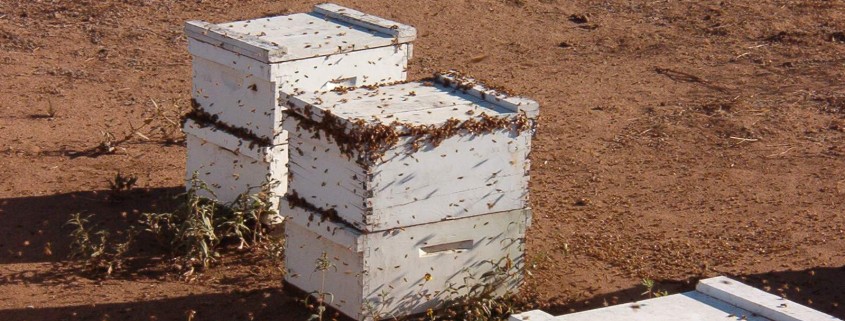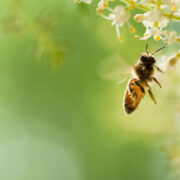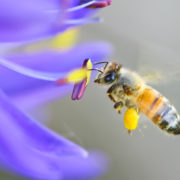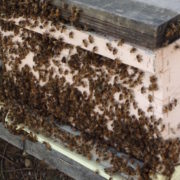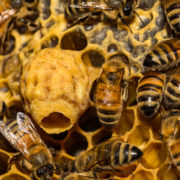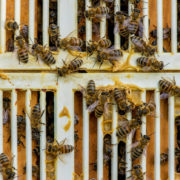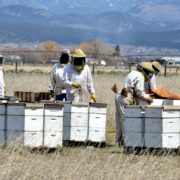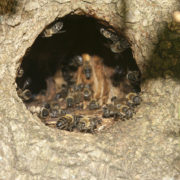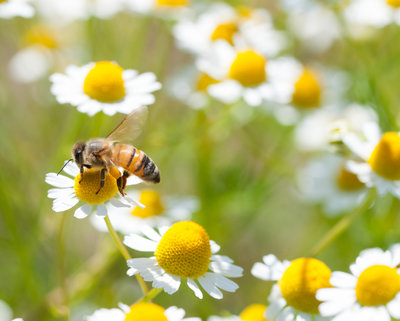Late Summer Robbing: Bees Behaving Badly
There comes a day, usually in mid or late summer, when the flowers dry up and stop producing nectar. This is a terrible state of affairs for honeybees, because late summer is usually when the average beehive is at its strongest. The foragers at this time of year have probably never known any conditions in their lifetime other than excellent conditions. Nothing has prepared them in their short lives to experience so much failure on their foraging flights; coming back empty time and again. They are miserable and discouraged. All of sudden, the honey that is stored and tucked away in the colony next door begins to look attractive.
Occasionally, the bees get the notion to forage for honey that is stored inside other colonies. They fight their way past the guard bees, steal some honey, return to their colony, and signal their success to their fellow workers. This is called “robbing.” When robbing starts, things can turn ugly quickly. The strongest colonies pick on the weakest ones, which can become quickly overrun by the pillaging bees. The robbers steal all the honey and leave the weak colony to perish. During the course of all of this, the bees turn frenzied and aggressive – both towards each other as well as to any nearby people. Stinging increases.
The worst part about robbing, besides the loss of colonies and overall bad behavior, is that disease can spread amidst the pandemonium. Often there is a reason why a colony may be weak and subject to being robbed: it is sick. Having healthy bees fighting with sick bees is a sure way to spread diseases and mites across an entire apiary. All beekeepers agree: although beekeepers may not be able to stop robbing completely, they should do everything in their power to keep it from getting started.

